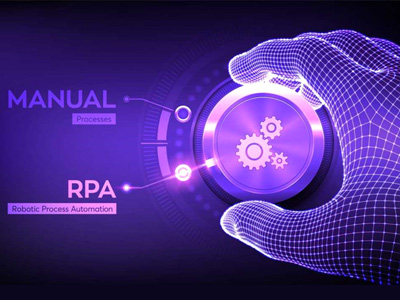How Robotic Process Automation is Impacting The World in 2023?

Robotic Process Automation (RPA): The game-changing revolutionary impact on the world in 2023
INTRODUCTION
Robotic Process Automation (RPA) is a rapidly growing technology that is transforming the business landscape. In 2023, the impact of RPA on the world is expected to be even more significant, as more and more businesses adopt this technology to automate their processes. RPA can automate repetitive and mundane tasks, resulting in increased efficiency and cost savings, improved accuracy and quality of work, enhanced customer experience, increased flexibility and scalability, improved compliance and security, increased employee satisfaction, and improved decision-making. This article will delve into the details of how Robotic Process Automation is impacting the world in 2023. We will explore the benefits of RPA and how it is changing the way businesses operate.
Increased Efficiency and Cost Savings
One of the primary benefits of RPA is increased efficiency and cost savings. RPA can automate repetitive and time consuming tasks, reducing the time and effort required to complete them. This results in increased productivity and efficiency, which can save businesses a significant amount of money. In fact, according to a study by Deloitte, RPA can lead to cost savings of up to 30% in certain areas.
Improved Accuracy and Quality
RPA eliminates the possibility of human error in repetitive tasks, which leads to improved accuracy and quality of work. By automating processes, RPA ensures that the same process is executed consistently and accurately every time. This, in turn, leads to improved customer satisfaction and increased trust in the company.
Enhanced Customer Experience
RPA can significantly enhance the customer experience by improving response times and reducing errors. By automating customer service tasks, such as email response, chatbots, and social media management, RPA can provide customers with faster and more accurate responses. This leads to increased customer satisfaction, loyalty, and repeat business.
Increased Flexibility and Scalability
RPA allows businesses to be more flexible and scalable. It can quickly adapt to changing business needs, allowing businesses to scale up or down as required. RPA can also automate tasks across multiple systems, making it easier for businesses to integrate new systems into their existing infrastructure.
Improved Compliance and Security
RPA can help businesses ensure compliance with regulations and standards by automating compliance-related tasks. This leads to improved compliance and reduced risk of non-compliance . Additionally, RPA can enhance security by automating security-related tasks, such as access management and threat detection.
Increased Employee Satisfaction
By automating repetitive and mundane tasks, RPA can free up employees' time to focus on more engaging and challenging tasks. This can lead to increased job satisfaction, employee engagement, and retention.
Improved Decision Making
RPA can provide businesses with real-time data and analytics, allowing them to make more informed decisions. By automating data collection and analysis, RPA can provide businesses with insights into their operations, customers, and market trends. This, in turn, can lead to improved decision-making and business outcomes.
Reduced Training Time and Costs
With RPA, businesses can reduce the time and costs associated with training employees on complex systems and processes. RPA can automate the training process, making it easier for employees to learn new systems and processes quickly and efficiently.
Improved Collaboration
RPA can improve collaboration between teams by automating communication and collaboration tasks. For example, RPA can automate the process of scheduling meetings, sharing documents, and sending notifications, making it easier for teams to collaborate and work together effectively.
Increased Innovation and Agility
By automating repetitive and mundane tasks, RPA can free up employees' time to focus on more innovative and creative tasks. This can lead to increased innovation and agility, allowing businesses to stay ahead of the competition and adapt to changing market conditions.
Better Resource Allocation
RPA can help businesses optimize resource allocation by automating tasks that require fewer resources, such as data entry and processing. This allows businesses to allocate their resources more effectively and efficiently, leading to cost savings and improved performance.
Improved Compliance Reporting
RPA can automate compliance repor ting, making it easier for businesses to demonstrate compliance with regulations and standards. This can reduce the time and effort required to generate compliance reports and reduce the risk of non-compliance.
Increased Transparency and Accountability
RPA can increase transparency and accountability by automating the tracking and monitoring of business processes. This allows businesses to identify areas for improvement and ensure that employees are following established processes and procedures.
(This "Security Blogs" Published in June 2023 Edition)













